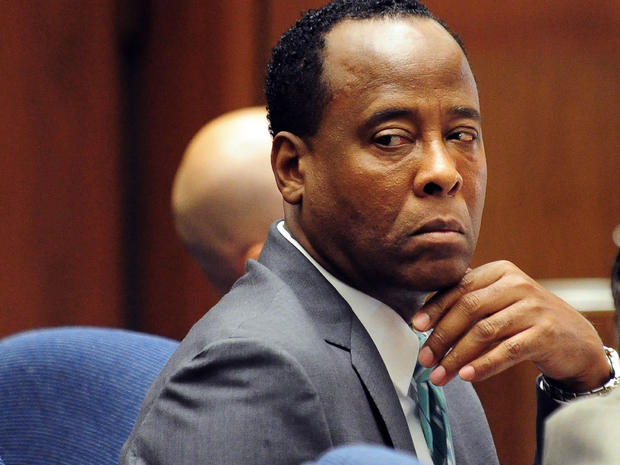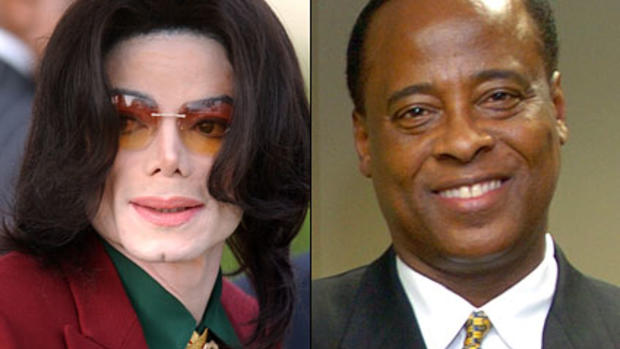Propofol expert resumes testimony in trial of Michael Jackson's doctor, Conrad Murray
(CBS/AP) LOS ANGELES - A leading expert on the anesthetic blamed for Michael Jackson's death has resumed testifying Wednesday in the involuntary manslaughter case against the pop star's personal physician.
Pictures:
Who's who in the trial of Dr. Conrad Murray
Pictures:
Michael Jackson's Doctor Trial
Video:
Dr. Conrad Murray manslaughter trial begins
Dr. Steven Shafer has returned to the stand on behalf of the prosecution after a recess of three-and-a-half days. Time off was initially given to accommodate the Columbia University professor's schedule, but his father died and the delay was extended.
Shafer's early testimony focused on his lengthy credentials, studies he has helped create, and his work crafting guidelines and warnings that are included with every bottle of propofol.
Prosecutors claim Murray ignored those warnings by giving Jackson the anesthetic in the bedroom of his rented mansion.
Shafer told jurors he is not charging for his work on the Jackson case, in part because he wants to restore public confidence in the medication and doctors.
"I am asked every day in the operating room, `Are you going to give me the drug that killed Michael Jackson,'" Shafer said. "This is a fear that patients do not need to have."
Shafer is expected to be the prosecution's final witness in its case against Dr. Conrad Murray, who has pleaded not guilty to involuntary manslaughter.
A judge canceled testimony Tuesday as well to give defense attorneys time to research new test results conducted by coroner's officials on the level of the sedative lorazepam in Jackson's body.
Murray's attorneys have claimed that lorazepam levels found in the singer's stomach contents suggested he may have taken several pills in the hours before his death without his doctor's knowledge.
Murray has admitted giving Jackson doses of propofol in the pop superstar's bedroom as a sleep aid. Murray's attorneys have said that the amount of propofol their client gave Jackson on the day of his June 2009 death was too small to cause the icon's sudden death at age 50.
Deputy District Attorney David Walgren said Monday that the new results from the coroner's office show that levels of lorazepam in Jackson's body were lower than the defense claimed and were inconsistent with the theory Murray's attorneys had presented to jurors.
Lead defense attorney Ed Chernoff said Tuesday that he was seeking additional testing from an independent lab to confirm or disprove the coroner's results, but that it would take several days for the defense to get the answers it needs.
Walgren agreed that he would not raise the issue of the new tests until after the defense team presents its case.
Complete coverage of the Conrad Murray - Michael Jackson case on CBS News

